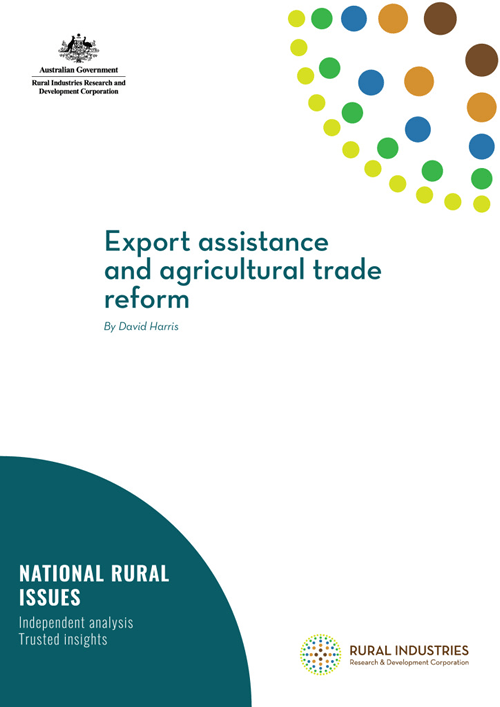The report examines concerns about the distortion effects of two forms of export assistance – export subsidies and export finance support. Export subsidies are a highly trade distorting form of support. Indirectly they contribute to increased output and higher export supplies from economies that provide the assistance. This comes at the expense of distorting world trade. Subsidised trade increases global price volatility, lowers market returns and displaces trade by other export suppliers.
Concerns about subsidised exports often skim over the differentiated distortion effects that can arise. Some import markets receive larger amounts of subsidised trade. They can experience a more direct, disproportionate price impact and a greater adjustment burden if commercial use of the subsidy leads to stronger competition for sales. When developing economies are targeted for subsidised sales it can have implications for industry growth and development.
Export finance support is another concern in the provision of export assistance. Finance re-payment guarantees backed by governments are an export contingent input subsidy that lowers the transaction costs of imports. They create an incentive for importers to favour the export suppliers that offer the assistance which causes a displacement of competing exports into other markets.





